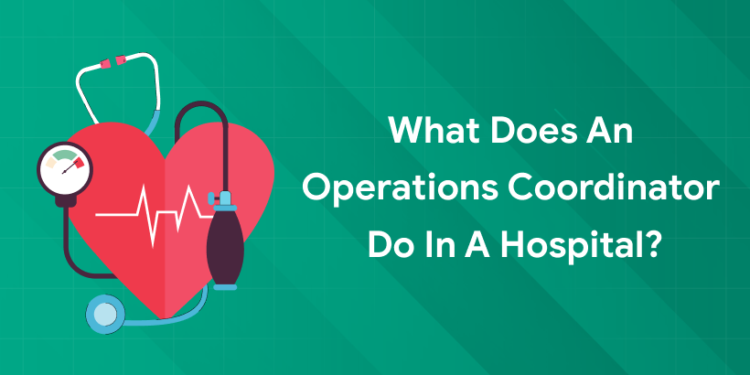Table of Contents
Key Takeaways:
- Hospital Operations Coordinators ensure smooth daily running of hospital functions, bridging multiple departments and optimizing workflows.
- They handle administrative tasks, resource management, staff coordination, and problem resolution with strong organizational and communication skills.
- This role contributes significantly to efficient patient care by supporting clinical and non-clinical operations.
- A relevant degree and experience in healthcare or administration help enter this growing career path with positive job prospects.
- Enrolling in a comprehensive hospital administration course, like Entri’s Hospital Administration course with placement support, offers a solid foundation and practical skills for aspiring coordinators.
Introduction
Imagine a hospital bustling with patients, doctors, nurses, and other healthcare professionals, all working diligently towards a common goal — quality patient care. Behind the scenes, there’s a crucial figure ensuring that this complex environment runs effortlessly: the Operations Coordinator. These professionals are the unsung heroes who manage the many moving parts, from scheduling to supplies, so healthcare providers can focus on what they do best.
Whether it’s coordinating between departments or handling administrative challenges, the role of an Operations Coordinator in a hospital can often seem invisible but is vital to patient satisfaction and institutional success. This blog dives into what hospital operations coordinators do, the essential skills they bring, and why pursuing formal training can accelerate your career in this fulfilling domain.
What Does a Hospital Operations Coordinator Do?
1: What is the primary role of a hospital administrator?
A hospital operations coordinator is the backbone of daily operational activities within a hospital, ensuring everything from logistics to communication flows seamlessly across departments. Their role is dynamic, requiring close collaboration with clinical teams, administrative staff, and external vendors to guarantee efficient hospital management that directly supports quality patient care.
Core Responsibilities
- Overseeing Daily Hospital Operations: Coordinators monitor day-to-day functions to keep hospital activities on track. This includes managing patient flow, service delivery processes, and ensuring all departments meet their operational goals.
- Coordinating Between Departments: Acting as the link between various units like nursing, medical departments, pharmacy, and facilities management to enhance communication and resolve operational issues quickly.
- Staff Scheduling and Management: Organizing shifts and rotations for hospital staff, coordinating temporary coverages, and addressing staffing shortages to maintain adequate workforce availability.
- Inventory and Supply Chain Management: Monitoring medical supplies, equipment, and pharmaceuticals to ensure consistent stock levels. Coordinators liaise with procurement teams to avoid disruptions caused by shortages.
- Administrative Duties: Managing records, preparing operational reports, scheduling meetings, and ensuring compliance with hospital policies and healthcare regulations.
- Problem Resolution: Quickly identifying operational bottlenecks such as equipment failures, understaffing, or workflow interruptions, and implementing effective solutions.
- Communication and Liaison: Maintaining open communication channels among hospital staff, management, patients, and external partners to ensure mutual understanding and smooth cooperation.
- Compliance and Quality Control: Ensuring hospital safety standards are upheld, regulatory mandates are met, and quality improvement initiatives are followed through.
- Support for Training and Development: Assisting in organizing staff training sessions and orientation programs to keep hospital employees updated on best practices and compliance requirements.
- Patient Satisfaction Focus: Collaborating with departments to address patient complaints or feedback, helping improve overall patient care experience and service delivery.
- Emergency Preparedness: Supporting hospital preparedness by coordinating drills, helping manage crisis response protocols, and ensuring resource readiness.
Secure a career pathway in Hospital Administration with Entri!
Impact and Importance
By efficiently coordinating resources, personnel, and policies, hospital operations coordinators play a critical role in minimizing delays, optimizing costs, and enhancing the working environment for healthcare providers. This, in turn, positively impacts patient outcomes, satisfaction, and the hospital’s operational excellence goals.
They often serve as the first point of contact when operational disruptions occur, demonstrating their problem-solving skills and ability to manage stress while keeping hospital activities running smoothly.
Hospital Administration Course with Assured Career Growth
Hospital Administration Course by Entri App: Master essential healthcare management skills, gain certification, and secure top roles in leading hospitals
Join Now!Essential Skills for Hospital Operations Coordinators
Being a successful hospital operations coordinator demands a mix of interpersonal and organizational skills. Essential capabilities include:
- Organizational Skills: Handling multiple duties, priorities, and schedules without losing track.
- Communication: Clear and effective interaction across multidisciplinary teams and external partners.
- Problem-solving: Quickly addressing challenges to prevent disruptions in hospital services.
- Resourcefulness: Innovating with available resources to optimize workflows and manage costs.
- Attention to Detail: Ensuring accuracy in records, inventories, and compliance with procedures.
- Leadership: Motivating teams and guiding junior staff, especially in the absence of senior managers.
These competencies are critical for maintaining operational efficiency and supporting high-quality patient care.
Career Path and Educational Requirements
A career as a hospital operations coordinator offers a promising and structured pathway with ample opportunities for growth, specialization, and leadership. The journey typically begins with foundational education, followed by progressive roles that build expertise and responsibility.
Educational Foundations
- Bachelor’s Degree: Most hospital operations coordinators start with a bachelor’s degree in healthcare administration, business administration, hospital management, or a related field. These programs cover essential topics including healthcare policies, hospital workflows, management principles, and healthcare economics, providing a strong theoretical base.
- Hands-on Experience: Internships, volunteer roles, or entry-level positions in hospitals or healthcare settings provide invaluable practical exposure. These roles introduce candidates to hospital environments, workflows, and operational tools.
- Certifications: To boost career prospects, additional certifications such as Project Management Professional (PMP), Lean Six Sigma, or Certified Healthcare Operations Professional (CHOP) are recommended. These demonstrate specialized skills in process improvement and project management, which are highly valued in hospital operations.
Early Career Roles
- Junior Operations Coordinator (0-2 years): Early roles focus on learning the ropes of hospital operations, assisting in scheduling, records management, and basic coordination duties. This phase emphasizes building organizational and communication skills.
- Operations Coordinator (2-4 years): At this stage, individuals take on more responsibility in coordinating multi-departmental logistics, managing resources, and solving operational problems under supervision.
- Senior Operations Coordinator (4-7 years): This role involves overseeing complex projects, mentoring junior staff, and playing an active role in policy compliance and process optimization.
Career Progression and Growth
With experience, hospital operations coordinators can advance into mid and senior management roles:
- Operations Manager: Responsible for managing the daily operations of departments or units within a hospital, optimizing workflows, resource allocation, and often participating in budget planning.
- Hospital Administrator or Director of Operations: These roles involve strategic planning, policy development, staff management, and collaboration with senior leadership to drive hospital-wide operational excellence.
- Specialized Tracks: Operations professionals may choose to specialize in areas like supply chain management, quality assurance, patient services coordination, or financial operations within healthcare.
- Leadership Roles: Ultimate career growth leads to positions such as Chief Operating Officer (COO) or Chief Administrative Officer (CAO), where one oversees all operational aspects of the hospital or healthcare system, shaping policies and long-term strategies.
Growth Tips for Aspiring Coordinators
- Continuous Learning: Healthcare is dynamic, so staying updated on regulations, management trends, and technological advances is crucial. Online courses, workshops, and healthcare conferences offer valuable learning opportunities.
- Networking: Building connections within healthcare management circles opens doors to mentorship and career opportunities. Joining professional organizations and attending industry events can be beneficial.
- Skill Development: Enhancing skills in data analysis, healthcare informatics, communication, and leadership will significantly improve job performance and career trajectory.
- Practical Training: Enrolling in structured programs like Entri’s Hospital Administration course, which offers real-world case studies, placement support, and industry insights, can accelerate your readiness and employability.
This combination of education, experience, and ongoing development paves the way for a rewarding career path in hospital operations, balancing meaningful impact with professional advancement.
Hospital Administration Course with Assured Career Growth
Hospital Administration Course by Entri App: Master essential healthcare management skills, gain certification, and secure top roles in leading hospitals
Join Now!Salary Details for Hospital Operations Coordinators in India
Salaries for hospital operations roles vary based on experience, location, and institution size. Below is a detailed comparison of average annual and monthly earnings:
| Experience Level | Average Annual Salary (USD) | Average Annual Salary (India INR) |
|---|---|---|
| Entry-level (0-2 years) | $40,000 – $55,000 | ₹4,00,000 – ₹7,00,000 |
| Mid-level (3-5 years) | $55,000 – $75,000 | ₹7,00,000 – ₹12,00,000 |
| Senior-level (5+ years) | $75,000 – $95,000+ | ₹12,00,000 – ₹18,00,000+ |
Salaries in urban centers like Kochi, Chennai, and Kozhikode are generally higher due to increased cost of living and larger healthcare facilities. With experience and advanced qualifications, professionals can progress into managerial roles with significantly higher compensation.
How to Become a Hospital Operations Coordinator with Entri’s Hospital Administration Course
For anyone aspiring to become a hospital operations coordinator, gaining both theoretical knowledge and practical skills is essential. Entri’s Hospital Administration course provides a clear pathway to enter and excel in this career by offering comprehensive training tailored to the healthcare industry’s needs.
How Aspirants Can Take This Course
- Eligibility: The course is accessible to fresh graduates, students pursuing management or life science streams, paramedical staff, nurses seeking administrative roles, or anyone passionate about hospital operations management. Typically, candidates with a 12th-grade qualification (higher secondary) can enroll.
- Online and Flexible: Delivered primarily online, the course suits working professionals and students, enabling flexible learning from any location in Kerala or beyond.
- Course Duration: It is an 8-month diploma-level program consisting of 4 months of intensive classroom training, 3 months of on-the-job training/internship in specialist hospitals, followed by 1 month of revision and model exams.
- How to Enroll: Aspirants can visit Entri’s official course page, submit an application form online, and complete the admission formalities including fee payment and document verification to start the course promptly.
Course Features Designed to Make You Job-Ready
- Expert Trainers: Learn from hospital administration professionals and doctors with over ten years of industry experience.
- Hands-on Training: Includes Basic Life Support (BLS) training, spoken English enhancement, IT training, hospital-specific software training, and practical account management.
- Offline Workshops: Intensive workshops to develop management skills and simulate real-world hospital administration scenarios.
- Comprehensive Curriculum: Covers vital topics such as clinical management, hospital operations, healthcare marketing, quality control, hospital finance, medical terminology, and communication skills.
- Interactive Learning: Weekly live sessions, video lectures, case studies, and project work to engage learners deeply.
- Placement Assistance: Entri offers dedicated placement support by connecting students with leading hospitals and healthcare institutions, helping them secure interview opportunities and jobs as hospital operations coordinators and administrators.
- Interview Preparation and Profile Building: Specialized training for resume crafting, interview techniques, and professional profile enhancement to boost job prospects post-course completion.
- Internship Opportunities: On-the-job training in reputed hospitals provides real-world exposure and practical experience that is highly valued by employers.
- Certification: A recognized diploma certificate upon successful completion validating your expertise in hospital administration.
How This Course Leads to Operations Coordinator Roles
The course curriculum is tailored to equip aspirants with the practical knowledge and skills crucial for hospital operations coordination, such as employee scheduling, resource management, inter-departmental communication, and compliance adherence. The internship components expose students to actual hospital workflows, helping them transition smoothly into entry-level coordinator positions once certified.
With Entri’s comprehensive placement assistance, candidates often find their way into operational roles where they can apply their newly acquired knowledge and grow within hospital management systems, making this course one of the best investments for launching your healthcare career.
Conclusion
A career as a hospital operations coordinator is dynamic and impactful, playing a key role in delivering quality healthcare by ensuring efficient hospital operations. By building strong organizational, communication, and problem-solving skills and getting trained through reliable programs like Entri’s Hospital Administration course, you can step confidently into this growing profession. Take that step today towards a rewarding career that makes a real difference in healthcare.
| Also Read | |
| How to Become a Hospital Administrator | |
| Top Skills Needed for a Successful Career in Hospital Administration | |
| Career Pathways in Hospital and Healthcare Administration |
Hospital Administration Course with Assured Career Growth
Hospital Administration Course by Entri App: Master essential healthcare management skills, gain certification, and secure top roles in leading hospitals
Join Now!Frequently Asked Questions
What is the difference between a hospital operations coordinator and a hospital administrator?
An operations coordinator focuses on daily workflow and support tasks, while an administrator handles higher-level management strategies and planning.
What qualifications do I need to become a hospital operations coordinator?
Typically a bachelor’s degree in healthcare administration, business, or a related field, plus experience in healthcare settings is preferred.
Are communication skills important in this role?
Absolutely. Coordinators must liaise with diverse teams to ensure smooth operations.
Is this job stressful?
It can be demanding due to multitasking and fast-paced environments, but the role is rewarding with opportunities to enhance healthcare delivery.
Can Entri’s Hospital Administration course help me get a job?
Yes, the course offers placement support and practical skills that are attractive to employers in healthcare institutions.















